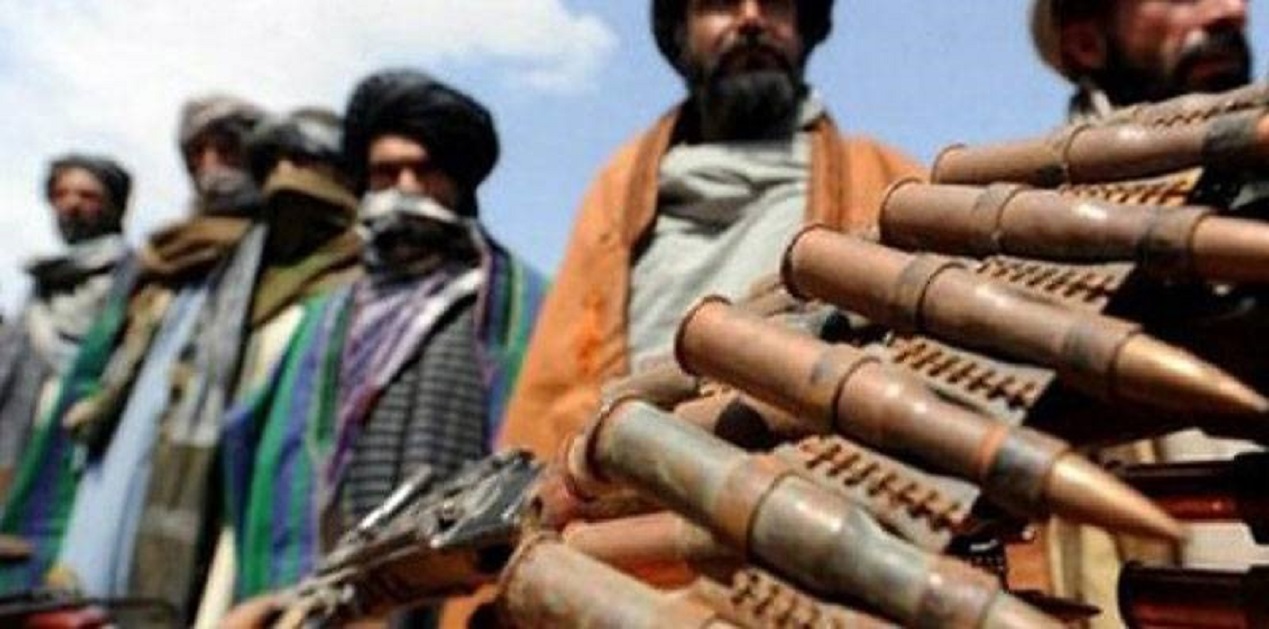In the two years since the Taliban seized power in Afghanistan significant developments have been unfolding in the country’s Northern provinces. This article looks at two specific developments – first, the relocation of Tehrik-i-Taliban Pakistan (TTP) members from Af-Pak border regions and second, the Qosh Tepa water canal project; to suggest that these developments are likely to have impact not only on the ethnic demography but also on the wider regional stability in the years to come.
Relocation of TTP from Af-Pak border
Repeated attacks by the TTP since the Taliban takeover of Afghanistan in 2021 has been a matter of grave concern for Pakistan. The TTP insurgency in Pakistan further intensified since a monthlong cease-fire expired and Afghan Taliban mediated peace talks collapsed. Islamabad has been pressurizing the Taliban to curb the sanctuaries of TTP on Afghanistan’s side of the border. Pakistan’s utter frustration with Afghan Taliban’s lackluster response to these challenges came out into the open in April 2022, when Pakistan carried out airstrikes in Afghanistan’s eastern provinces of Khost and Kunar.[1] Although Islamabad maintained silence on the incident, media reports suggested the raid targeted the TTP operating across the Durand Line, which resulted in the intensification of tensions between the neighbours.[2] In March 2023, at a time when Pakistan was going through a deep economic crisis, reports appeared that Afghan Taliban has expressed their willingness to disarm the TTP and relocate members of the organisation from the Pakistan-Afghan border if Pakistan bears the cost of the proposed plan.[3] While Pakistan’s response to Taliban proposition remains unknown, but in June 2023 news emerged that an agreement between the Taliban and Pakistan had been reached to relocate TTP members to Afghanistan’s northern region to keep them away from Pakistan borders.[4]
The planned relocation involves around 72,000 individuals[5] that include TTP fighters and their family members. Approximately 300 individuals have already been resettled in the northeastern province of Takhar close to the Tajikistan border, leading to clashes with the area’s predominantly Uzbek residents. Pakistan has reportedly promised to provide agricultural equipment to the resettled fighters in a bid to discourage them from terror activities on its soil.[6] It has been argued that the Taliban’s goal of transferring TTP to the Northern provinces is not only simply keeping Pakistan satisfied, but it is the continuation of the unfinished plan of the past rulers to alter the ethnic demography with a strategy of “Pashtunization” of these regions.
Emir Abdur Rehram Khan (1880-1901) during his reign initiated the process of settlement of ethnic Pashtuns to strengthen his hold on the Persian-speaking non-Pashtun minorities living in the northern territories. He stated that since the King of Afghanistan is Pashtun, Pashtuns should watch over the Afghan-Russian Frontier.[7] The British Empire supported the Pashtun colonization of northern Afghanistan due to Britain's desire to reduce Russian influence in Afghanistan. Subsequently, Amanullah Khan in 1922 issued a 12- article decree – ‘The Settlers to Qataghan Act’, aimed at legitimizing the settlement of Pashtuns in the fertile areas of Qataghan (the old name for northern Afghanistan).[8]
Since Pashtun-dominated governments have historically resettled Pashtuns from the south to the northern region, the ethnic minorities are concerned that the Taliban’s policy of resettlement of their co-ethnic TTP brothers to the North; as part of a similar pattern. The anxiety among the non-Pashtuns in Afghanistan was heightened by the fact that hundreds of Shia Hazara families from Southern Helmand and Northern Balkh Province were evicted from their land after August 2021 and those lands were redistributed among Pashtuns.[9]
The Qosh Tepa Canal Project
Another significant development unfolding is the construction of the Qosh Tepa Water Canal by the Taliban to divert water from Amu Darya- a project that was initiated by the Afghan Republic. The 285 km canal (see map below) is expected to be built across Balkh, Jawzjan and Faryab provinces in the north and might involve relocating Pashtuns from the South. This project has caused apprehension among the predominantly non-Pashtun communities in the north; who look at the issue as part of a strategy by Taliban to settle Pashtuns from South and South-eastern Afghanistan (even Pakistani Pashtuns) in a bid to alter the ethnic demography of the region. Uzbek leader Abdul Rashid Dostum, who was the Afghan first vice president (2014 – 2020), was among the influential politicians who raised concerns about the project during the previous government. a href="#_edn10" name="_ednref10">[10] One of his concerns was that this project would be used to benefit and resettle Pashtuns in areas where Uzbeks were in majority.

Northern Afghanistan has predominantly been inhabited by the ethnic minorities such as Tajiks, Uzbeks and Turkmen. The South and South Eastern part across the Durand Line (the international border between Afghanistan and Pakistan, which Afghanistan does not recognize) has traditionally been the areas where ethnic Pashtuns have resided. Even during the Taliban’s first stint in power (1996-2001), some of these provinces in north remained anti-Taliban bastion under legendary Tajik Commander Ahmed Shah Massoud and Uzbek Commander Dostum. Presently, one of the most visible anti-Taliban groups is the National Resistance Front (NRF), led by Ahmad Masoud, son Ahmad Shah Masoud; has presence in the northern Afghanistan.
Although unlike the 1990s, Taliban today controls the entire country, it is aware that resistance to the regime can come from the regions in the north Pashtuns are in minority. Moreover, the Islamic State of Khorasan Province (ISKP) has also become increasingly active in the north - the assassinations of Governor of Balkh[11] and Deputy Governor of Badakhshan[12] provinces in 2023 by ISKP was an indicator for the same. Therefore, it is believed that the decision to relocate TTP members in northern Afghanistan is to use the group against potential popular resistance or armed opposition to the Taliban regime – be it in the form of NRF or ISKP.
Various extremist groups such as the Jamaat Ansarullah, the Islamic Movement of Uzbekistan, and the Eastern Turkistan Movement, which have allied with the Taliban in the last two decades, have concentrated their presence in the north of Afghanistan – a phenomenon that has been referred by NRF as the ‘Waziristanization’ of northern Afghanistan with reference to Waziristan on the Pakistani side of the Afghanistan-Pakistan border, which served as a sanctuary for the Taliban and Al Qaeda members during the past two decades.[13] These groups have had agendas against Central Asian States and China, therefore the possibility of destabilization of the region as a result of these groups expanding their activities in these countries cannot be ruled out.
Finally, some observers also see larger motive behind the unfolding developments in Afghanistan and look at it from the perspective of a proxy war of the West against Russia in Central Asia. They argue that the US may have persuaded the Taliban to relocate the fighters while others point out that Beijing is behind the shift of the fighters in a bid to bring peace to Pakistan, where it has invested billions of dollars in rail, road, power, infrastructure and port projects.
The situation in northern Afghanistan is fast evolving and it is acutely important for local stakeholders and international community to keep a close watch at the unfolding developments. The Taliban backed resettlement policies certainly raise concerns about the Taliban’s intentions; whether or not, these policies impact the ethnic demography of northern Afghanistan will be known after years. Nonetheless, it is likely that the ongoing developments will have profound consequences on regional stability, community relations, connectivity projects and the preservation of cultural diversity in the region.
References
[1] “At least 47 dead in Afghanistan after Pakistan attacks: Officials.” Al Jazeera, April 17, 2022. Available at:https://www.aljazeera.com/news/2022/4/17/afghanistan-death-toll-in-pakistan-strikes-rises-to-47-official(Accessed on 25.8.23)
[2]Ibid
[3] “Will Pakistan bear the cost for TTP relocation?”, The Print, March 8, 2023.
[4] “Pakistan Cautiously Lauds Afghan Taliban's Moves to Counter Cross-Border Terrorism.” Voice of America, July 18, 2023. Available at:https://www.voanews.com/a/pakistan-cautiously-lauds-afghan-taliban-s-moves-to-counter-cross-border-terrorism-/7172654.html(Accessed on 25.8.23)
[5]Taliban, Pakistan Reach Settlement on TTP Members’ Relocation to Northern Afghanistan, Khaama Press, June 13,2023. Available at: https://www.khaama.com/taliban-pakistan-reach-settlement-on-ttp-members-relocation-to-northern-afghanistan/
[6] “Next chapter of the Great Game unfolds as terror outfits find new home in northern Afghanistan”. India Narrative, July 5, 2023. Available at: https://www.indianarrative.com/world-news/next-chapter-of-the-great-game-unfolds-as-terror-outfits-find-new-home-in-northern-afghanistan-146866.html.
[7]Christian Bleuer "State-building, migration and economic development on the frontiers of northern Afghanistan and southern Tajikistan". Journal of Eurasian Studies. 3: 69–79, 2012
[8]Settlers of Qataghan Act, Afghanistan Centre at Kabul University.https://law.acku.edu.af/wp-content/uploads/2022/11/acku_risalah_hd1333_a3_noon69_1302_dari.pdf( Accessed on 25.8.23)
[9] “Afghanistan: Taliban Forcibly Evict Minority Shia”. Human Rights Watch, 22 October 2022. Available at: https://www.hrw.org/news/2021/10/22/afghanistan-taliban-forcibly-evict-minority-shia.
[10] “Not A Problem But A Disaster': Afghan Canal A Test For Taliban Ties In Water-Stressed Central Asia”. Radio Free Europe, April 5, 2023. Available at:https://www.rferl.org/a/afghanistan-taliban-canal-water-central-asia/32350996.html
[11] “ISKP claim two high-profile assassinations in Balkh and Herat”. Afghan Witness, March 10, 2023. Available at:https://www.afghanwitness.org/reports/iskp-claim-two-high-profile-assassinations-in-balkh-and-herat-.
[12] “Afghan provincial governor killed in car bombing”. Al Jazeera, June 6, 2023. Available at:https://www.aljazeera.com/news/2023/6/6/afghan-provincial-governor-killed-in-car-bombing
[13]National Resistance Front, Twitter handle @NRFafg, June 22, 2023. Available at: https://twitter.com/NRFafg/status/1671784605689565184
(The paper is the author’s individual scholastic articulation. The author certifies that the article/paper is original in content, unpublished and it has not been submitted for publication/web upload elsewhere, and that the facts and figures quoted are duly referenced, as needed, and are believed to be correct). (The paper does not necessarily represent the organisational stance... More >>
Image Source: https://i.dawn.com/primary/2023/01/05113218df912a7.jpg









Post new comment